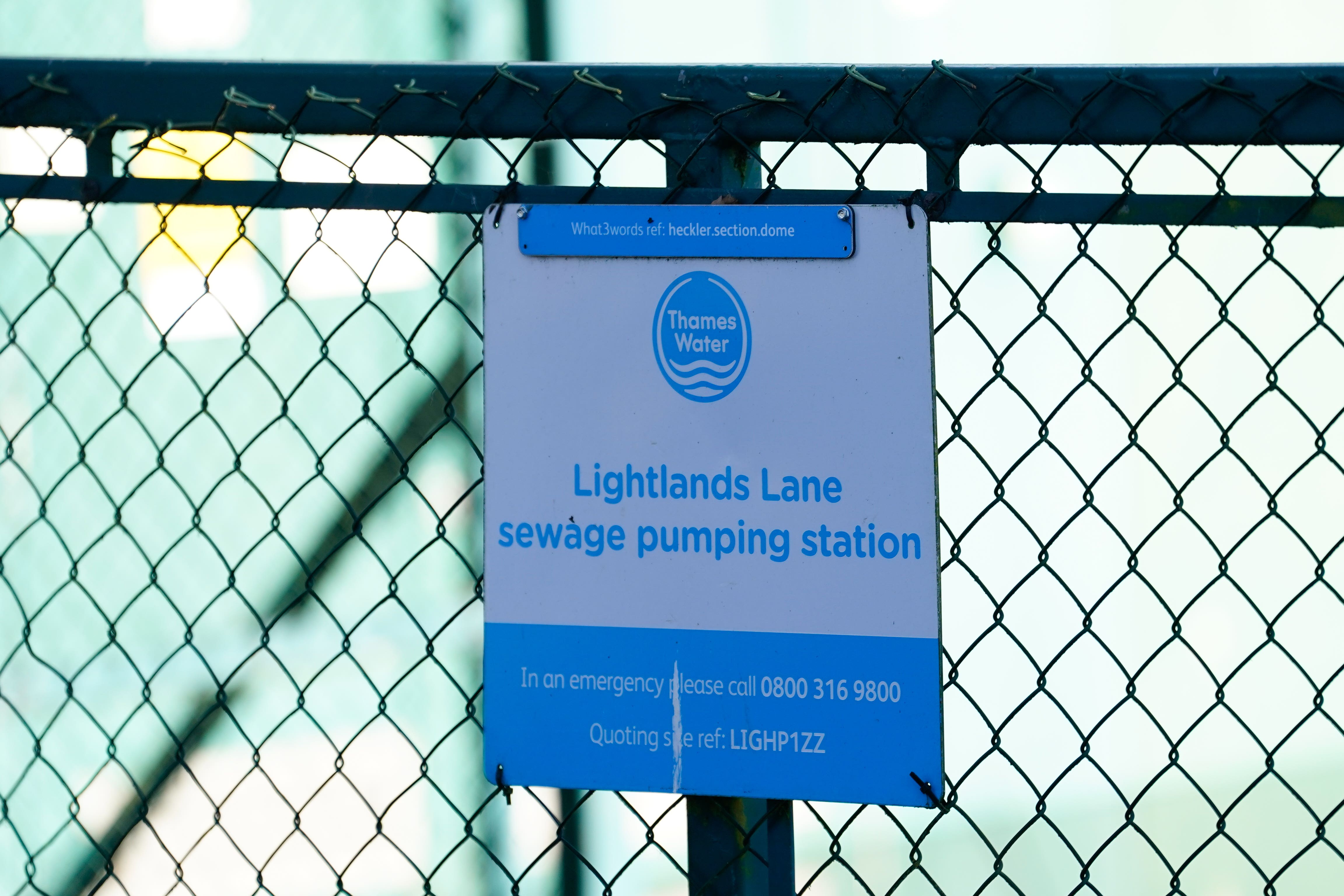Water firms face £168m in fines for ‘catalogue of failure’ on sewage pollution
Sanctions include a £104 million penalty for Thames Water, as part of regulator Ofwat’s biggest ever investigation into the industry.

Support truly
independent journalism
Our mission is to deliver unbiased, fact-based reporting that holds power to account and exposes the truth.
Whether $5 or $50, every contribution counts.
Support us to deliver journalism without an agenda.

Louise Thomas
Editor
Three of the country’s biggest water companies could be forced to pay £168 million in fines over sewage spills, including a £104 million penalty for Thames Water.
Regulator Ofwat proposed the fine for Thames, plus sanctions of £47 million for Yorkshire Water and £17 million for Northumbrian Water, in the first results of a landmark probe into all 11 of England and Wales’ water firms.
Ofwat chief executive David Black called the three firms’ records of polluting rivers and waterways “a catalogue of failure”.
He said: “Our investigation has shown how they routinely released sewage into our rivers and seas, rather than ensuring that this only happens in exceptional circumstances as the law intends.”
Water companies have faced public outrage over the extent of pollution, and at a lack of investment in water infrastructure, rising bills, high dividends and executive pay and bonuses at privatised water firms.
The fine could be especially impactful for Thames, which is in the grip of a funding crisis and has more than £15 billion of debt. It said last month that it only has enough money to continue trading until the end of May 2025.
Mr Black stressed that the burden of the fines will fall on investors, rather than customers, and that it is “not at all” the case that the penalties will result in higher bills.
The unacceptable destruction of our waterways should never have been allowed – and it is right that those responsible for illegally polluting our rivers, lakes and seas face the consequences
He also admitted that Thames “faces serious challenges” but said the regulator will “not relent in enforcing their obligations whatever the financial circumstances”.
He said it was “not a relevant consideration” for the watchdog that such a penalty could tip the struggling utility firm into bankruptcy.
Thames’ fine amounts to 9% of the company’s turnover, just shy of the 10% maximum Ofwat is allowed to impose, which Mr Black said “recognises the seriousness of the breaches we have uncovered”.
He told the BBC that three more water companies: Anglian Water, Wessex Water and South West Water, will face proposed rulings as part of a similar investigation later this year.
Severn Trent, United Utilities, Dwr Water – the Welsh Water company – and Hafren Dyfrdwy, will face rulings after that.
Environment Secretary Steve Reed said: “The unacceptable destruction of our waterways should never have been allowed – and it is right that those responsible for illegally polluting our rivers, lakes and seas face the consequences.”
He added that the Government plans to “fundamentally reform the water sector” via a new Bill announced last month.
Ofwat said there was a “strong correlation” between high spill levels and operational issues at Thames, Yorkshire and Northumbrian’s wastewater treatment sites, “which points to these companies not having properly operated and maintained their wastewater treatment works”.
Thankfully the water regulator, for so long toothless, is finally waking up to the scale of the public’s outrage and we are starting to see some meaningful penalties being imposed upon the worst offenders
It said more than two-thirds of Thames’ wastewater treatment works had operational issues, while one in six of its storm overflows were in breach of regulations.
Yorkshire Water’s wastewater treatment works were in better shape, with just 16% of them having operational issues, while 45% of its storm overflows were in breach.
And 3% of Northumbrian Water’s wastewater works had issues, while 9% of its storm overflows were in breach.
Charles Watson, chairman of campaign group River Action, said Ofwat is “finally waking up to the scale of the public’s outrage and we are starting to see some meaningful penalties being imposed upon the worst offenders”.
He also criticised water companies for paying out billions in shareholder dividends in recent years.
“Until the ability of these polluting companies to hand out so much cash is severely curtailed, pollution will continue to be a highly profitable activity with inadequate incentives for the water companies to fix their creaking infrastructure and stop filling our rivers with raw sewage,” he said.
A Northumbrian Water spokesperson said they are “very disappointed” with the fines, adding that the firm is “working really hard to continue to deliver for customers and the environment”.
A Yorkshire Water spokesperson said the firm is “disappointed” with the proposed fine and that it had “co-operated fully” with Ofwat.
A Thames Water spokesman said untreated sewage spills are “unacceptable, even when they are permitted”, adding that the firm was working on improving its record.
They suggested the firm is hoping Ofwat may reduce the financial penalty if Thames Water commits to redress the failures, adding that the company will respond to the proposed fine “in due course”.
Subscribe to Independent Premium to bookmark this article
Want to bookmark your favourite articles and stories to read or reference later? Start your Independent Premium subscription today.